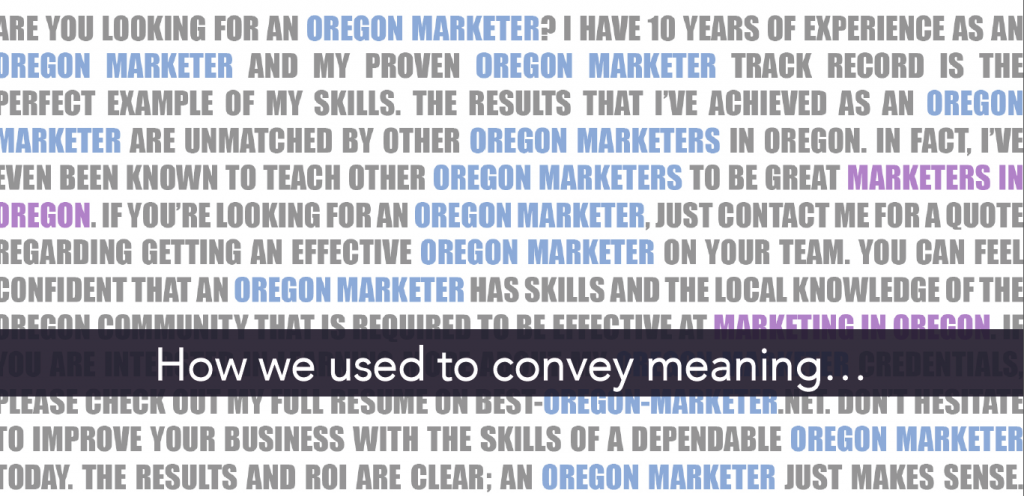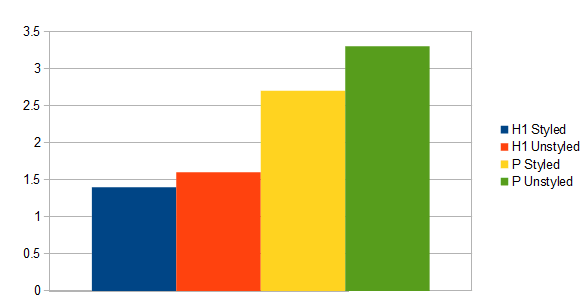Why do you need to index your site?
First, the obvious answer.
If you want your site to show up in the search results at all, then it needs to be indexed.
However, you don’t want your site to be indexed just once. You want the search engines to keep re-indexing your site.
Search engines like Google don’t just update automatically.
They rely on spiders — little bits of computer code that each search engine sends out to “crawl” the web (hence, “spider”). You want an efficient, frequent crawl rate.
The spider’s job is to look for new stuff on the web and update the already indexed version of your site. That “new stuff” can be a new page on an existing site, a change to an existing page, or an entirely new site or blog.
Once the spider finds a new site or page, it needs to figure out what that new site or page is about.
Way back in the Wild Wild West of the early web, search engine spiders weren’t nearly as smart as they are today. You could force a spider to index and rank your page based on nothing more than how many times a particular search phrase (“keyword”) appeared on the page.
For today’s content success, you can’t rely on these old school search engine optimization strategies.

And the keyword didn’t even have to be in the body of the page itself. Many people ranked for their biggest competitor’s brand name just by stuffing dozens of variations of that brand name in a page’s meta tags!
Fortunately for Google search users and ethical website owners, those days are long gone.
Today, keyword and meta tag stuffing will get you penalized, not rewarded. And meta keyword tags aren’t really part of the algorithm at all (though there are still good reasons to use them).
If you’re not careful, you could get your site kicked out of the index altogether — which means your site won’t rank for any keywords at all.
These days, Google is much more concerned with the overall user experience on your site and the user intention behind the search — i.e., does the user want to buy something (commercial intent) or learn something (informational intent)?
Don’t get me wrong — keywords still matter. Other factors are also important — up to 200 altogether, according to Brian Dean of Backlinko. These include things like quality inbound links, social signals (though not directly), and valid code on all your pages.

But none of that will matter if the spiders can’t tell the search engines your pages are there in the first place, meaning they won’t show up in search results.
And that’s why indexing is so important.
To put it simply, indexing is the spider’s way of gathering and processing all the data from pages and sites during its crawl around the web.
Frequent indexing improves your search results.
The spider notes new documents and changes, which are then added to the searchable index Google maintains. Those pages are only added if they contain quality content and don’t trigger any alarms by doing shady things like keyword stuffing or building a bunch of links from unreputable sources.
When the spider sees a change on your website, it processes both the content (text) on the page as well as the locations on the page where search terms are placed. It also analyzes the titles tag, meta tag, and alt attributes for images.
That spider then adds, or “indexes”, that content into Google.
That’s indexing in a nutshell. It is an essential webmaster tool.
When a search user comes along looking for information by typing in search keywords, Google’s algorithm goes to work. The algorithm then decides where to rank a page in comparison to all the other pages related to those keywords.
How often your site is indexed can affect your performance in search results. You want to make sure all your latest content is available for those searching and Google’s spiders at all times.
That’s the short and somewhat simplified version of how Google finds, analyzes, and indexes new sites like yours. Many other search engines, like Bing or Yahoo, follow similar procedures, though there can be variations in the specifics as each has its own algorithm.






0 Commentaires